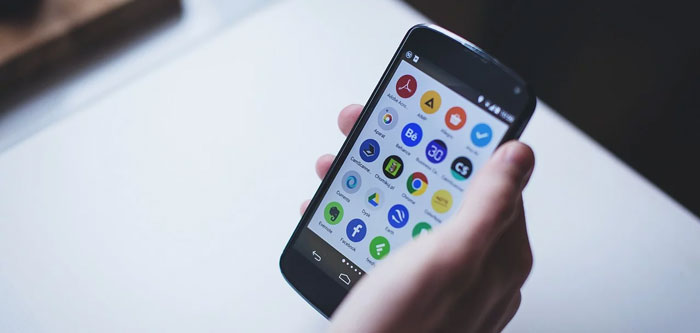If you think that a password alone is enough to protect your phone from data breaches, you are wrong. Case in point, researchers recently identified more than 1,000 apps that have been bending data privacy rules despite their users denying them permission to access specific data. Sadly, this is only but a tip of the cybersecurity iceberg, and cybercriminals are always looking for crafty ways to get their hands on the sensitive data you store on your phone.

From personal contacts to your home address, your phone is a gold mine for these criminals. Some of the crafty ways they use to launch cyber-attacks on your android phone might be subtle, but effective. Even worse, there isn’t a magical pill for preventing these attacks since hackers are always coming up with new ways. The best alternative would be to follow common security precautions to protect your personal data on your android device.
Here are some data security insights to follow:
Keep Software Up To Date
Software updates are like a vaccination for your phone- they protect your phone from exploits identified by software developers. Sadly, most people opt out of updating their phones, with most disabling the auto-update feature on their android devices. If a hacker manages to identify that you haven’t applied updates for a specific exploit, the chances are that they will target your smartphone.
Avoid ignoring such updates. Even better, it would be wiser to switch on the auto-update feature on your smartphone to ensure that you never miss an update. You can always set the updates to only happen when connected to a Wi-Fi network if you are worried about them consuming too much of your mobile data.
Be Wise with Your Choices of Public Wi-Fi
While free public Wi-Fi might be inviting, it comes with the threat of being a platform through which hackers can launch cyber-attacks. Hackers can easily use unsecured Wi-Fi networks to launch man-in-the-middle attacks that can help them snoop into your private data. This can include conversations, photos, and your personal address, among others.

The best option would be to avoid using open and unsecured public Wi-Fi as much as possible. You should always switch off your Wi-Fi setting on your android device to avoid having it connect to these Wi-Fi networks without you intending to.
If you must connect to these networks, at least ensure that you have a VPN to help encrypt your data. The trick is to pick a VPN that is good enough to protect your data without you having to make too much of a tradeoff. The ideal VPN should activate only when necessary, not when you least need them, such as when you are using an insecure app.
Avoid Third-Party App Stores
Only download your applications from the Google Play Store. Google has strict guidelines that these applications have to follow in order to find their way into the app store. Some of these guidelines include rules about security, functionality, and customer support. In fact, Google requires them to provide you with a dedicated policy that outlines how they will protect your data.
While the apps from the Google Play Store aren’t all trustworthy, sticking to these apps is better than relying on apps from third-party app stores. Some of these apps are laden with spyware, malware, and Trojan viruses that will do nothing that puts your data security at risk. Most of these sites use cunning ways to attract people to download their apps, such as offering free giveaways, but you will be sacrificing a lot more than you are gaining.
Be Mindful Of App Permissions
An app shouldn’t ask permission to access something on your phone if it doesn’t need it for its core function. For instance, a calculator app should ask for permission to access your location or contacts. Ideally, you should read through the permission requests of every app you install, and only allow the necessary permissions.
This will work for a majority of the apps, but some are known to bend the rules. If you notice that your phone’s average battery life drops after installing an application, you should be wary of the app. Such malicious apps operate in the background, which eats into your battery life. Be sure to uninstall such apps.
Focus On Password Management
It is useless to use a weak password that can easily be hacked. In fact, hackers have access to databases of commonly used passwords, which could lead to them accessing your smartphone within seconds. Be sure to use strong passwords for your smartphone as well as the apps on the phone. This will also protect your data from being accessed by unauthorized people if you were to lose it.
Most people hold on to more than one password for all the accounts on their phones. Since some of these accounts require you to change your password every few days, it might be tough to remember each of these passwords. The wise choice would be to install a password manager to help have some control over all these passwords.
The security of any private data stored on your phone lies entirely in your hands. With hackers looking for new ways to gain access to it, you should be aggressive at keeping it safe. Focus on the tips above to evade the risk of facing a data breach.

